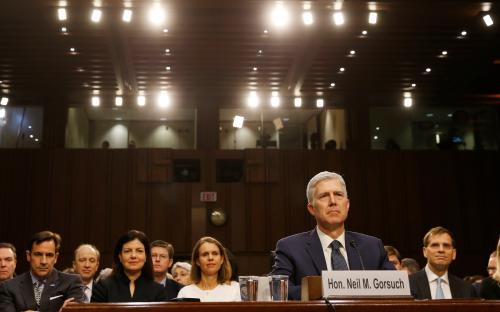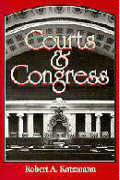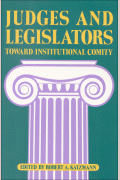Is Neil Gorsuch an “Originalist”? Impossible.
If by “originalist” one means a judge who interprets the Constitution the way its Framers intended, Judge Gorsuch is no originalist. Neither was Justice Scalia, the original “originalist.” No judge is or can be. Too much has happened since 1789. Although some portions of the Constitution and Bill of Rights are clear—“No Person shall be a Senator who shall not have attained the Age of thirty Years” or “The Congress shall have the Power To …establish Post Offices…”— their very clarity means that these portions seldom give rise to constitutional disputes. For the most part, however, we cannot know what the Framers intended. Even if it is clear how the Framers intended the Constitution to be applied to a dispute they could anticipate, there is no way of knowing how they would have applied it to a dispute they could not even dream of. For example, the Constitution gives Congress, not the Executive, the sole power to declare war, but we managed to fight wars in Korea, Vietnam, Afghanistan and Iraq without any formal Congressional declaration. In extending the power to declare war only to Congress, did the Framers intend to provide a constitutional defense to men charged with a refusal to fight in Vietnam? No one can tell.
Not only are original intentions muddied by or lost in the fog of history or the tangles of court decisions and Constitutional amendments, but there may not have been an original intent to begin with. When a document not only has several principal drafters, some minor contributors, and the concurrence of numbers of signers, but also can take effect only with the concurrence of a majority of legislators in each of the several states, agreed-upon language will often reflect different readings of what that language entails. Hence it should be recognized that efforts to discern the Framers’ intent is a culturally- rather than an empirically-determined activity. A judge seeking to show that a decision is consistent with the Framers’ intent starts with the language of the Constitution, quickly turns to canonical interpretations of that language—like the Federalist Papers and statements in state ratifying conventions—and next turns to prevailing legal practices in the American Colonies or revered decisions and procedures embedded in the jurisprudence of the English mother country or, as with the Sixth Amendment, English practices so unjust as not to be tolerated here. Typically justices on both sides of a divided Supreme Court can find support for their positions in one or more of these sources. Although both sides may claim the mantle of originalism, whether it fits one side or the other or neither is seldom beyond dispute. Both culturally and empirically, characterizations of the Framers’ intent almost always tell us more about the decision a justice desires than they do about the decision the Framers might have intended.
Consider the Second Amendment which provides: “A well regulated Militia being necessary to a free State, the right of the people to keep and bear Arms, shall not be infringed.” What does this mean? The main clause appears to extend unequivocally a right to people to keep and bear arms, but even that phrase is ambiguous. Read literally, it does not create a new right. Rather it assumes a pre-existing right and says that no inroads should be made on it, whatever it was. Further complicating any effort to discern the Framers’ intent is the introductory clause that situates the right to bear arms in the context of the need to maintain a “well regulated militia.”
Historians can and have disagreed about whether the Second Amendment was intended to give individuals a personal right to bear arms and about the contours of such a right if it was intended. They do, however, agree that the Second Amendment was not intended to limit state arms control measures. This is because the Bill of Rights when enacted only restrained actions of the federal government. The assertion of this right against the states depends on the 14th Amendment, which provides in part that “No state shall make or enforce any law which shall abridge the privileges or immunities of citizens of the United States…” and that no state “shall … deprive any person of life, liberty, or property, without due process of law…” The justices have, however, with the majorities relying on the Due Process Clause, differed on whether this language was intended to apply to all of the Bill of Rights, only some of the Bill’s ten amendments (those “fundamental” to a scheme of “ordered” liberty), or none of the ten amendments to the states. To date, the “some of” interpretation (selective incorporation) has prevailed.
One may argue about whether a right to be personally armed is so fundamental to a scheme of ordered liberty that it should be applied to the states. But even a justice who thinks the right is fundamental should find it hard to conclude that the drafters of the 14th Amendment read their amendment this way, since in 1876, just ten years after the amendment’s passage, the Supreme Court held that portions of the Bill of Rights, including the Second Amendment, did not bind the states. One might think that particular Court had a better grasp on the 14th Amendment’s framers’ intent than any recent Court could. Yet Justice Scalia, the original originalist, cast a deciding vote in favor of incorporation, disregarding both the 1876 decision and its affirmation with respect to the Second Amendment issue in a later Supreme Court case. Similarly, despite the race-neutral language of the 14th Amendment, its clear purpose was to help African Americans avoid discrimination and overturn legacies of slavery. Protecting rights of whites was not a motivating concern, and the Congress that passed the amendment did not hesitate to enact legislation that gave special protections and privileges to African Americans. It is hard to find in the history of the amendment a Congressional intent to bar affirmative action or other programs aimed at aiding minorities. Yet Justice Scalia, along with other conservative justices, consistently interpreted the 14th Amendment to the detriment of the descendants of the slaves it had been intended to benefit.
My point is not that a conservative Court’s decision to read the Second Amendment broadly and apply it to the states is unwise, wrong or jurisprudentially indefensible, nor that the numerous decisions establishing a largely race-neutral reading of the 14th Amendment are similarly misguided. Rather it is that if claims of originalism are advanced to suggest that a justice is or will be particularly faithful to the Constitution by virtue of being restrained by the Framers’ intent, the claim is at best an advertising slogan and is more likely a scam. What recent experience shows is that a justice’s values do more to shape his or her view of history than the justice’s view of history does to shape his or her reading of what the Constitution requires. Claiming to be an originalist and seeking always to ground one’s legal analysis in historical references does not change this truth.
One should be similarly skeptical when Supreme Court nominees or their boosters tout the nominee’s opposition to judicial activism and his or her commitment to interpreting statutes as Congress intended. Conservatives are no better than liberals on this score. The idea that conservatives are less activist or more prone to respect Congressional intent than liberals has been effectively put to rest by decisions like Citizens United and the 2013 gutting of key portions of the Voting Rights Act—a law passed almost unanimously in Congress just a few years before. Indeed, when judged by their willingness to overturn Congressional legislation and the democratic will that it represents, the conservative-dominated Courts of the last several decades have been among the most activist Courts in the nation’s history, far exceeding the activism of the Warren Court.
In deciding whether to confirm Neil Gorsuch to the Supreme Court, Senators should not be swayed by claims that a commitment to originalism means he is well-suited to be a Supreme Court Justice. A commitment of this sort should raise suspicions rather than give a senator confidence. Even a sincere belief that the Court should honor the intent of the Framers is of little comfort because when history provides clues to that intent, the clues are typically few and often conflicting. In politically controversial cases, values are more likely to determine readings of intent than the other way round. Even when there are good indications of legislative intent, as with some Congressional statutes, justices have been known to ignore or distort evidence of intent to reach decisions they desire.
This comment does not argue against the confirmation of Judge Gorsuch; it deals only with how he should be judged. Senators should examine Judge Gorsuch’s life experience and values and assume they will determine how he decides politically controversial cases, including not just civil rights and abortion cases, but also cases that pit the government and big business against individuals. Judge Gorsuch’s prior decisions, his off the bench writing, and his past actions and activities provide the best evidence of what he will most likely do. Some members of Congress will see in these strong reasons to support a Gorsuch appointment. Others will see in them strong reasons to oppose the Gorsuch appointment or to attempt to filibuster it. Claims about originalism or deference to Congress are only window dressing designed to make supporters appear principled and opponents seem politically motivated. But as with the turtles on which myth has claimed the earth rests, on both sides of the aisle it is politics all the way down.
The Brookings Institution is committed to quality, independence, and impact.
We are supported by a diverse array of funders. In line with our values and policies, each Brookings publication represents the sole views of its author(s).










Commentary
Is Neil Gorsuch an “Originalist”? Impossible.
February 22, 2017